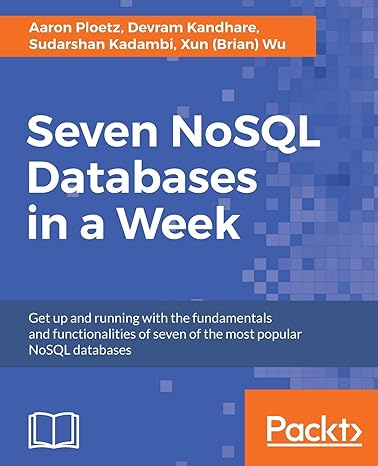Question
I am studying Finite State Machine and I came accross this question in the text book: Chegg doesn't have the solution for the text book
I am studying Finite State Machine and I came accross this question in the text book:
Chegg doesn't have the solution for the text book
Arbiter is a mechanism for allocating resources eciently in concurrent systems. The purpose of this exercise is to model an arbiter which allocates resources to two processes P and Q in such a way that every process eventually gets the requested resource. The following constraints apply for resource sharing between processes: R is a nite set of resources. for r 2 R there exists tr 2 N, denoting the maximum utilization time. a process can request the arbiter for any resource in R. arbiter will accept all requests from P and Q. every resource requested by a process should be allocated to it by the arbiter. a process which received a resource r at time t must return it to the arbiter before time t + tr.
Simulation For either exercise, use Prolog to translate the speci cation into a declarative database, and de ne the following rules: 1. Rule get events succeeds by obtaining a collection of state, event pairs where event is a legal event on state. 2. Rule get actions succeeds by obtaining a collection of all actions that the system can perform. 3. Rule path reads a state and succeeds by obtaining a collection of state-event pairs that can lead from the initial state to the given state. For simplicity, do not consider nested states, i.e. the rule applies to a single level of abstraction.
Step by Step Solution
There are 3 Steps involved in it
Step: 1

Get Instant Access to Expert-Tailored Solutions
See step-by-step solutions with expert insights and AI powered tools for academic success
Step: 2

Step: 3

Ace Your Homework with AI
Get the answers you need in no time with our AI-driven, step-by-step assistance
Get Started


